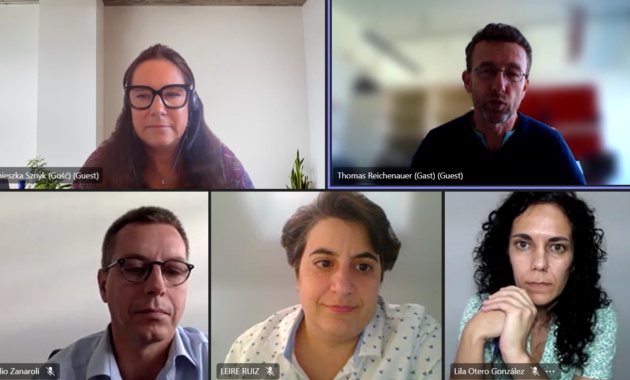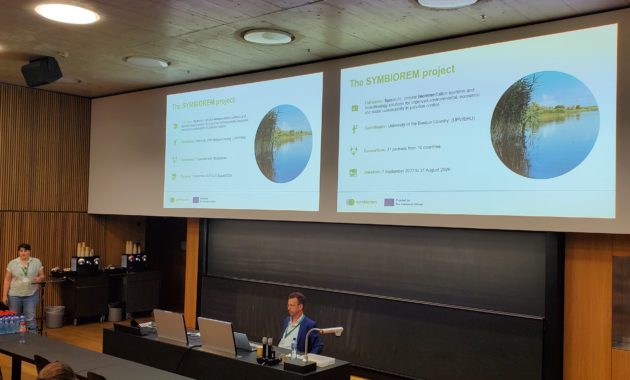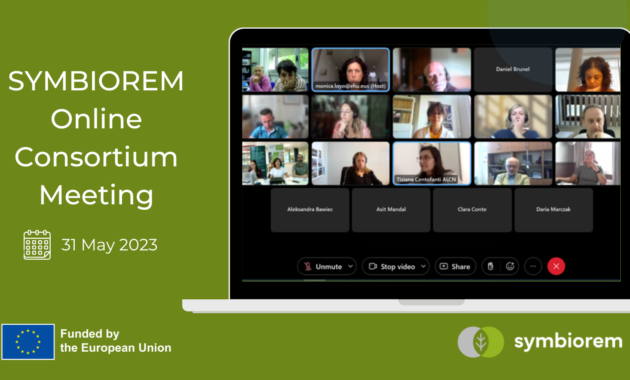Our project was invited to the webinar organised by the European Circular Economy Stakeholder Platform about bioremediation, held on 12 September.
The European Circular Economy Stakeholder Platform regularly organizes workshops, webinars, and interviews with experts in different topics linked to circular economy.
On 12 September 2023, SYMBIOREM participated in a webinar that aimed to showcase and discuss a wide range of nature-based solutions to clean up the environment and eliminate pollutants from soil and water.
Several stakeholders were invited to present cutting-edge bioremediation techniques that use living organisms to absorb contaminants, while conserving ecosystems and promoting the circular use of resources.
SYMBIOREM was one of the EU-funded projects that deal with the topic of bioremediation, which featured in the agenda alongside members of the sister projects NYMPHE, GREENER, MIBIREM, BIOSYSMO, and ELECTRA.
The webinar started with the introductions by the moderator Agnieszka Sznyk of INNOWO and by Giulio Zanaroli, Associate Professor at University of Bologna, on bioremediation, and the presentation of the policy context and EU funding opportunities by Silvia Maltagliati (DG RTD) and Cillian Lohan (European Economic and Social Committee).
The second part of the event was dedicated to the presentation of a series of bioremediation techniques that are being developed and tested by the different EU-funded projects.
Prof. Marco Candela of University of Bologna introduced the audience to the subject of biomodelling microbiome solutions.
Prof. Marcus Horn of the Leibniz University of Hannover talked about vermiremediation as an Ecofriendly Tool to Stimulate Microbial Biodegrdation of Herbicides and Bioplastics.
Blanca Velasco Arroyo, University of Burgos, contributed with a presentation on the inherent capacity of surrounding macrophytes and their hidden allies for phytoremediation.
SYMBIOREM activities were presented by Dr. Tiziana Centofanti of Alchemia Nova, who showcased the project’s work by Alchemia Nova and Consiglio Nazionale delle Ricerche on the bioremediation of polluted freshwater at Lake Neusiedl (Austria) through the use of mussels and macrophytes on a floating platform.
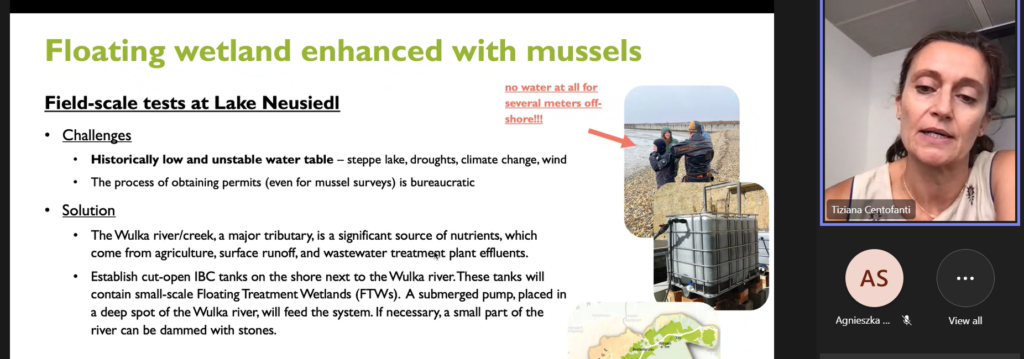
This technique will be used in the context of two test sites: the Lake Neusiedl (Austria), polluted by agricultural runoff (nutrients, heavy metals, and microplastics, and the Gallions Lake (UK), contaminated by road runoff and raw sewage (Polycyclic Aromatic Hydrocarbons and heavy metals).
The ongoing and future activities foreseen by Alchemia Nova and Consiglio Nazionale per le Ricerche at the site of Lake Neusiedl was described. Several points were touched:
- The objective of the pilot is installing a floating wetland that will have macrophytes and a structure underneath where freshwater mussels will be hung.
- It will be an enclosed system to study how mussels absorb metals and degrade organic contaminants.
- The challenge of low water at the lake will be overcome by working at its tributary, the Wulka river, where 8 IBC tanks with floating wetlands enhanced with mussels will be installed.
- Citizen science (led by Thames21) is an important element of the testing: not only for monitoring and sampling, but also for empowerment and education about bioremediation technologies.
The last part of the webinar consisted of a panel discussion among the project coordinators of the EU funded projects on bioremediation Giulio Zanaroli (NYMPHE), Dr. Thomas Reichnauer (MIBIREM), Dr. Leire Ruiz Rubio (SYMBIOREM), and Lila Otero (BIOSYSMO). Important topics were touched in this section: the safety aspect of the bioremediation techniques, linked to the risk assessments and evaluations of ethical issues for the solutions tested by projects; the scaling up and replicability of the techniques developed, which must go through the testing of the solutions in more than one pilot, given the differences across sites; the aspect of citizen science, a necessary condition for the potential deployment of these solutions that need the support and the belief of people. Cooperation among projects was also mentioned as a very important element to share results and raise the awareness of the public about the potential of bioremediation. As a last point, the success of these solutions will depend on consistent and secure investment and funding.
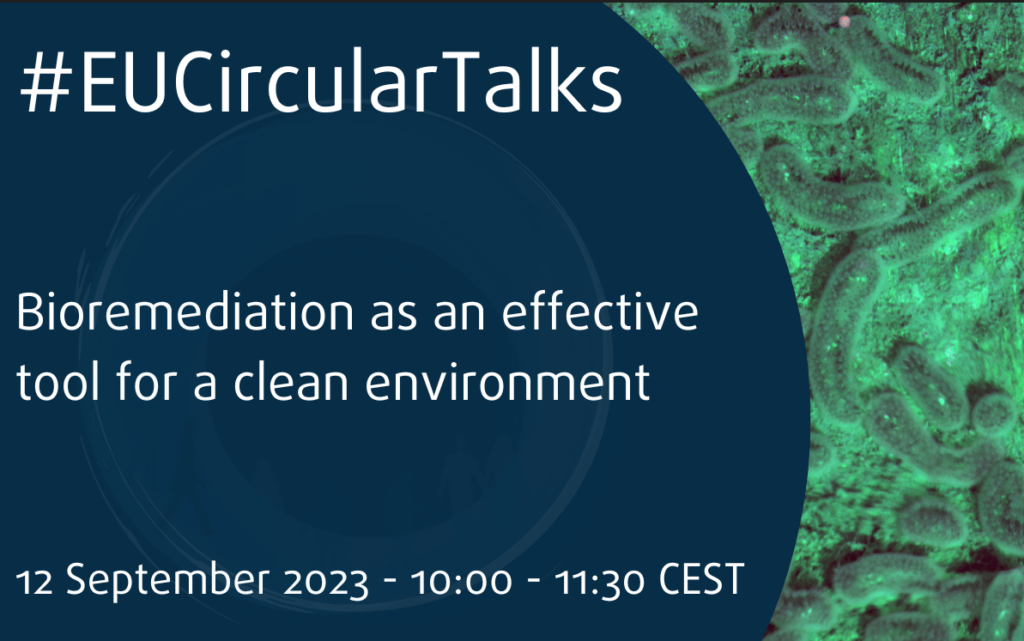
You can find all the presentation and the full recoding of the event at this link: https://circulareconomy.europa.eu/platform/en/news-and-events/all-events/bioremediation-effective-tool-clean-environment
